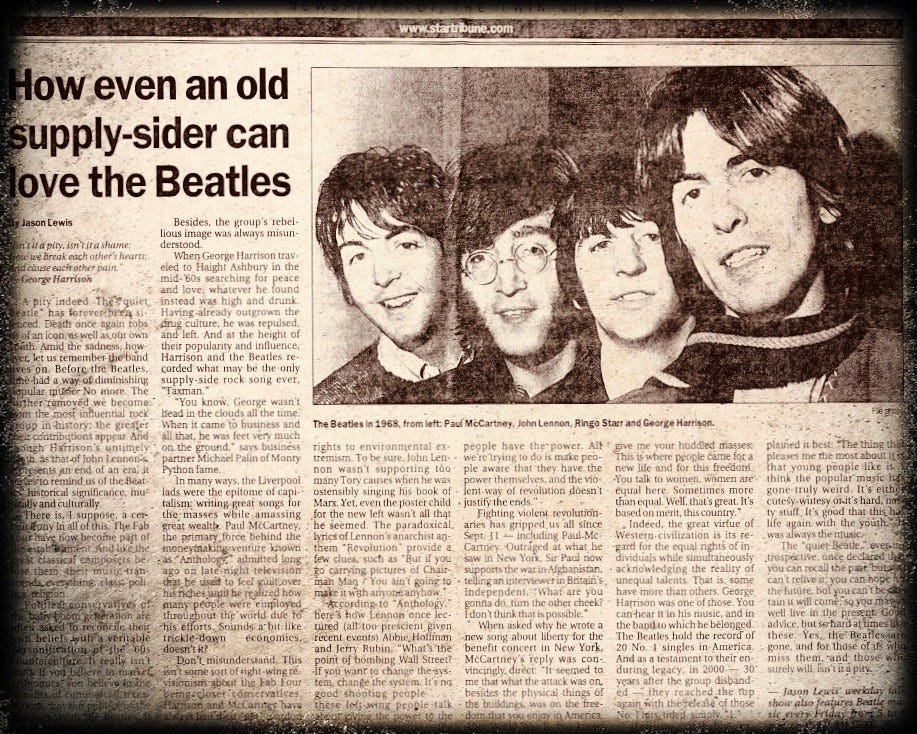1969 was truly an amazing year.
That’s not to say everything was good—but surely eventful. Think of it…Richard Nixon, a balanced budget, Vietnam, protests, Chappaquiddick, the moon landing, the Jets and the Mets in major championship upset wins and Elvis’ last number one song, Suspicious Minds.1
Oh, and this little band from Liverpool recorded their final album, Abbey Road, marking ‘The End’ of the Beatles.
Or was it?
Through the magic of ‘machine learning techniques’ utilized so well to isolate audio tracks in 2021's documentary Get Back, a John Lennon composition dubbed as ‘the last Beatles song’ has just been released. Ringo Starr plays drums on the single, appropriately titled, Now and Then, and Paul McCartney adds a guitar lick reminiscent of George Harrison to Lennon’s haunting vocals.
Not long after the passing of Harrison in 2001, I wrote how “the further removed we become from the most influential rock group in history, the greater their contributions appear. And though Harrison's untimely death, as that of John Lennon's, represents an end of an era, it serves to remind us of the Beatles' historical significance, musically and culturally.2
I had featured ‘Beatle-bumper Fridays’ for years on my conservative talk radio program, so I couldn’t help but note “a certain irony in all of this. The Fab Four have now become part of the establishment. And like the great classical composers before them, their music transcends everything: class, politics, religion.”3
Indeed, through the prism of time, the Beatles look more and more like the establishment they scoffed at and far less like revolutionaries.




